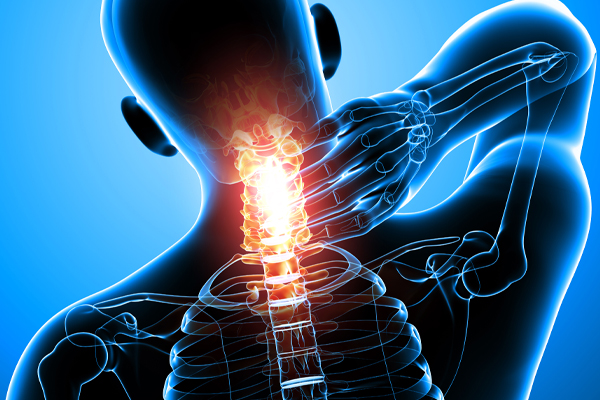Neck, Shoulder, And Back Pain
Do you have recurring neck, shoulder, or back pain?
If your past attempts to treat it have been unsuccessful, it might be because underlying issues weren’t fully addressed. The pain, for instance, could be due to problems in your jaw joint.
The jaw joint is a complex system consisting of several parts, which include nerves, bones, and muscles. These parts communicate with each other to function properly.
If one muscle malfunctions, the rest are affected too. Other muscles will compensate and this can eventually strain them. To achieve success in treating jaw issues, it’s crucial to look at the entire system.
The Connection Between Head and Neck Muscles and Your Posture
Good posture or the normal head posture is achieved when the weight of the head is balanced on the cervical spine.
The ears are above the shoulders, the chest is out, and the shoulders are rolled back. Slanting the neck forward, such as when you’re slouching, can strain muscles and joints and lead to neck and back pain.
The same can happen when you have a bad bite or malocclusion.
When the jaw joints are imbalanced, the head also loses its natural balance. The spine begins to twist to compensate, and the head and neck muscles become overworked. This can affect the shoulders and back muscles, causing them to become fatigued or sore.
Temporomandibular joint disorder (TMD) or a misaligned bite can impact several parts of the upper body. Addressing it can improve your muscle function and relieve upper body pain.
Poor Bite and Upper Body Pain
Muscles are a system. They’re working as a team. They allow you to perform everyday functions such as speaking and chewing comfortably. When jaw muscles become tight, sore, or compressed, your head and shoulders compensate.
When you have a poor bite, your jaw moves out of proper position. This can trigger pain in your neck, shoulders, and back. The pain in your upper back can eventually spread to your lower back as well.
Neck pain can also be a symptom of malocclusion and TMD. If the bite is off, the neck muscles overwork to help maintain head balance and posture.
Vice-versa, poor posture can also affect how your teeth come together and function. If you’re sitting, standing, or walking in an unbalanced position, this can cause stress on your jaw muscles. You may experience discomfort and pain in your jaw.
Because the jaw muscles also interact with the muscles in the head and neck, they can also become stressed when the latter is stressed.
Your dentist or a temporomandibular joint (TMJ) specialist can examine your jaw and their connection to your face and neck. They can diagnose issues and recommend approaches to improve your bite.
Treating Neck, Shoulder, and Back Pain Through TMJ Care
Fixing your bite can relieve pain in other parts of your body.
If you feel you have TMD that’s causing you discomfort, we encourage you to book a consultation with us at Wing Dental.
Our dentist can assess your symptoms and causes of the jaw issue and discuss possible treatments with you. Once your bite is corrected, you can break free from the neck, shoulder, and back pain and improve your overall health.
TMD can have serious consequences on your health if left untreated. Early diagnosis and treatment are crucial.
Call us today at (780) 624-9464 to schedule an appointment and learn more about proper TMJ care.



© 2025 Wing Dental and H-cube Marketing, www.DentalGrowthStrategies.com. All Rights Reserved.
